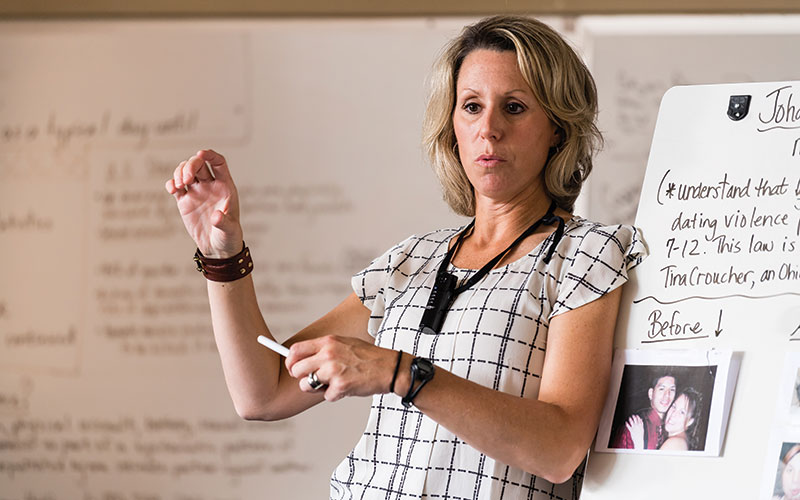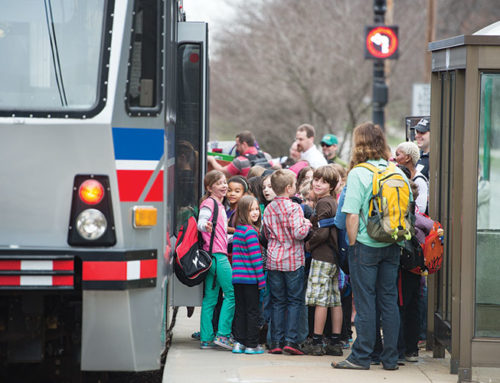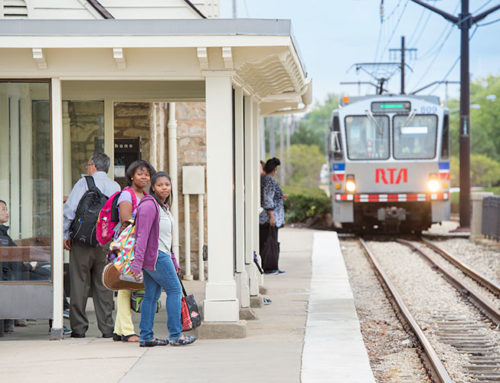“I wish there could be a petition to have health class in eighth-grade so we could still have her.” – Justice Riley, eighth-grader

All those uncomfortable conversations parents hate to have with their kids about hygiene, puberty, sex, and drugs? Beth Casey has them every day with students at Shaker Middle School. Now in her 22nd year, she wouldn’t have it any other way. “I used to teach both physical education and health, but now I’m strictly in the classroom, which I prefer,” she says. “I feel like I make more of a difference in health class.”
Personal: I’m married to Matt Casey, who works in commercial real estate. We don’t have kids. We have many nieces and nephews that we love to spoil. I also tell people that my students at school are my kids.
Main gig: Seventh-grade health education teacher
Other duties: Adviser of Ski Club, Golf Club, GSA (Gay/Straight Alliance) with Laura Boris and Kristina Longino, Newspaper Club with Emily Geier, and assistant swimming coach.
Why middle school?
I feel like I have found my niche. Some days middle schoolers share everything and want your attention and help, while other days they are self-sufficient. One person described middle school students as having one foot in childhood and the other foot on a banana peel as they are stepping into adulthood. I feel like I can connect with that.
What’s your secret to connecting with middle schoolers?
You have to be involved in school activities and you have to speak their language. You have to know what they are watching, what they’re listening to. You also have to have a sense of humor. If you don’t, you won’t survive. You can get along with this age group and still set boundaries.
What do students like about the Shaker Middle School experience?
They love the freedom of not being walked to their classes. That being said, some students struggle with that transition. It can take them several weeks to get organized.
What are the biggest challenges they face? And how can we support them?
Boys have peer pressure from each other in terms of living up to a certain “masculine” stereotype, while girls feel more pressure from the media (for example, with appearance/body image expectations). Support starts at home. Know what they are watching and talk about it. Don’t shelter them; inform them and listen to their concerns. This is when they need you the most. They don’t need you hovering; they need you by their side helping them grow into a competent young adult.
Best part of your job?
My subject area creates a lot of incredible discussions, but also some incredible laughs.
Toughest part of your job?
Seeing kids hurt each other on social media.
Extra credit: Middle school kids say the darndest things.
A student said to me, “Mrs. Casey, I have a field trip on Thursday and I won’t be back until the middle of this class. We are going to a farm, so I might actually smell like a farm when I come to class.”



